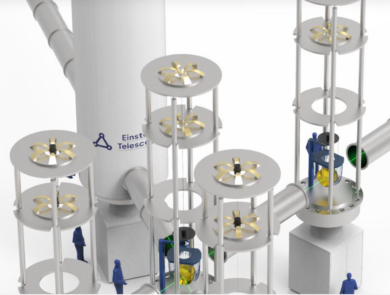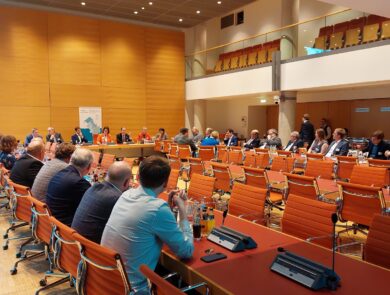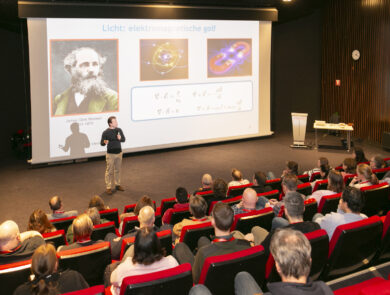BMBF funding for Einstein Telescope preparations

Fourteen German universities and research institutions receive a total of around 2 million euros from the Federal Ministry of Education and Research (BMBF). This grant allows physicists and geophysicists to work on various technological aspects of the Einstein Telescope. The planned activities include for example measuring seismic disturbances and developing crystalline fibers for the support of the large mirrors. The funding is part of a bigger programme that supports large-scale experiments in astroparticle physics.
Prof. Achim Stahl from RWTH Aachen University coordinates the project and is very pleased that the grant got approved. “These funds will boost the German contribution to the technology of the Einstein Telescope. It is the first time in 30 years that BMBF is willing to support gravitational wave physics on such a high level.”
Gravitational waves: a growing field of research
Scientists observed gravitational waves for the first time in 2015, 100 years after Albert Einstein predicted their existence. This was the start of a new era in physics and astronomy, as gravitational waves provide a whole new way of studying the universe. The future Einstein Telescope will be even more sensitive than existing gravitational wave detectors. Consequently, scientists will be able to look back into the dark ages of the universe for the first time. It will even be possible to look back until right after the big bang.
Around 40 German universities and research institutes are already involved in gravitational wave research and the preparatory work for the Einstein Telescope. They collaborate with partners in Belgium and the Netherlands. The approval of this BMBF grant is an important step to continue developing this growing field of research. It allows researchers and instrumentalists to work on a wide range of related topics, including computing, optics, lasers, cooling and noise reduction.
Candidate site
The border area of Germany, Belgium and the Netherlands (Euregio Meuse-Rhine) is one of the candidate sites for the Einstein Telescope. This has to do with the geology and the strong ecosystem of scientific institutions and high-tech companies. The other potential location is Sardinia. The location will probably be decided in 2023 or 2024.


